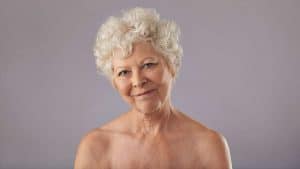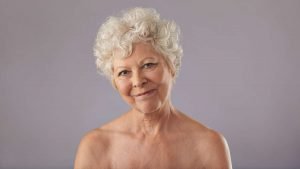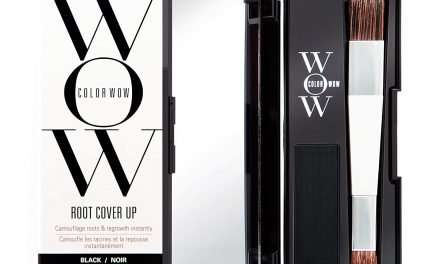
Several years ago, I was diagnosed with breast cancer at the age of sixty-nine. In a matter of hours, I was thrust headlong into a whirlwind of doctor appointments, consultations, biopsies, scans and x-rays. Through waves of gut-wrenching vulnerability, I felt my world closing in and choking the life right out of me.
Surviving Breast Cancer – Where Do I Start?
Before surgery, there were so many things to consider and decisions to make. I felt overwhelmed and exhausted, just when I needed to stay focused. My daughter or my husband took notes during all medical appointments, which was very helpful.
A Few Things to Consider Before Surgery
Due to an existing medical condition (lupus), I have no tolerance for the sun or any UV rays. So because of this, I decided a mastectomy was my only option due to the post-surgery radiation requirements after a lumpectomy.
I also can’t tolerate chemical medications of any kind, so I knew the surgery would take its toll on my body. And after weighing all options, I decided not to have reconstructive surgery, which would significantly increase my time in the operating room and my recovery. Going flat was the best option for me.
Stating My Case for a Double Mastectomy
Despite the fact that I had cancer in one breast, I decided early on that I would have both breasts removed. It was not an easy task to convince both my family doctor and my surgeon to agree. They were worried about the added risk, which was understandable. But I needed to do this and I repeatedly stated my case until they agreed.
My reasons for wanting both breasts removed were twofold. First, I didn’t want to go through it all over again down the road, if cancer was detected in the other breast. Then there was my self-esteem and sense of balance.
The idea of being left with one large D-cup breast, while the other side was flat, upset my emotional sense of order and well-being. Plus, I would be faced with the never-ending challenge of matching the flat side with a comfortable prosthesis.
Hard Work and Good News
So the operation took place and a bilateral mastectomy was done. The next couple of weeks were certainly no picnic, and I found daily home nursing care for the first few days a huge relief. It was difficult to come to terms with my fear of the cancer label, and my new image in the mirror. But I knew that ultimately, getting well was up to me.
A few weeks later, the oncologist told me the surgery had successfully removed all the cancer and that was good news. More good news – chemotherapy would not be required due the size and type of cancer I had.
We Need to Ask the Questions
When the oncologist told me I would be put on Tamoxifen as an after-care drug therapy, I was very nervous about the side effects I had read about, because of how I react to drugs. And when I asked what percentage this drug would help my chances of not getting cancer again, the oncologist was somewhat taken aback by my question.
She left the examining room, studied my file and did some analysis. When she returned, she admitted that I probably didn’t need to take it after all, because Tamoxifen would only minimally improve my chances.
Now I know this isn’t everyone’s story. I have friends going through their own personal challenges with breast cancer and I realize how fortunate I am not to be taking any follow-up drug treatment. But the issue here is – what if I hadn’t asked?
We need to challenge and ask questions about every step of our care; be relentless in getting all the relevant information we need to make the decisions that are right for us.
The Comfort of Going Flat
I’m happy with my decision not to have reconstruction. I love the comfort of going flat with the option of wearing prostheses only when I feel like it. After carrying around large breasts all my life, the freedom from all that weight on my shoulders, back and rib cage is truly a gift in a strange sort of way. And as a bonus, I can now choose any cup size I want to be. (“B” being the operative word here.)
Here Are The Top 10 Things I Learned From My Experience
- A post-surgery camisole is invaluable. The Velcro pockets hold the drain bulbs in place and help to avoid leakage. The camisole comes with removable soft puffs, which can be inserted into the built-in pockets and worn while you’re recovering.
- Home care nursing may be arranged by the hospital if you have drains after a mastectomy. Confirm the details of your care with hospital staff and know who to call if something breaks down in the process.
- Prepare yourself before surgery by looking at photos of other post-mastectomy bodies. Contact a breast cancer support agency in your area and ask them to provide you with the most appropriate photos for your situation.
- Ask about “dog ears.” Large breasted or overweight women have fatty areas under the arms as part of the breast – which may still be there after the breasts are removed. Before surgery, ask your surgeon if it’s possible to minimize this excess skin area.
- Confirm your details and don’t assume the hospital records are correct. On three of my pre-op appointments for tests, the hospital records indicated I was having a single mastectomy. I was even called back for an unnecessary biopsy.
- Pain management choices can include non-chemical drugs. Deep stomach (yoga) breathing and guided meditations proved to be very effective for me.
- Making the decision to go flat is a very personal one. There is some good information about this issue at breastfree.org
- Sewing bra pockets for prostheses into existing bras, camisoles and bathing suits can save having to buy expensive mastectomy clothing.
- Breast prostheses can be heavy, hot and expensive. There are cheaper and lighter options available, so it pays to take your time and do some research.
- Gentle yoga was the best thing I did, to help me get my body back in shape after surgery and restore my overall sense of well-being.
So here I am several years later – flat and fabulous! I realize this is not the experience for everyone who has been through the pain and agony of this insidious disease.
This is simply my personal journey. I’m not sure what the future holds, but I have been living my life. It was all about choice, asking the right questions and being diligent in gathering the facts to weigh my options. The decisions I made were simply the right ones for me. Cancer was something I had and now it’s gone, and I’m moving on.
Do you know anyone who has survived breast cancer? What advice would you give to someone who is going through something similar? Please join the conversation.





